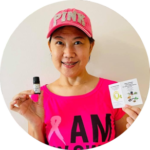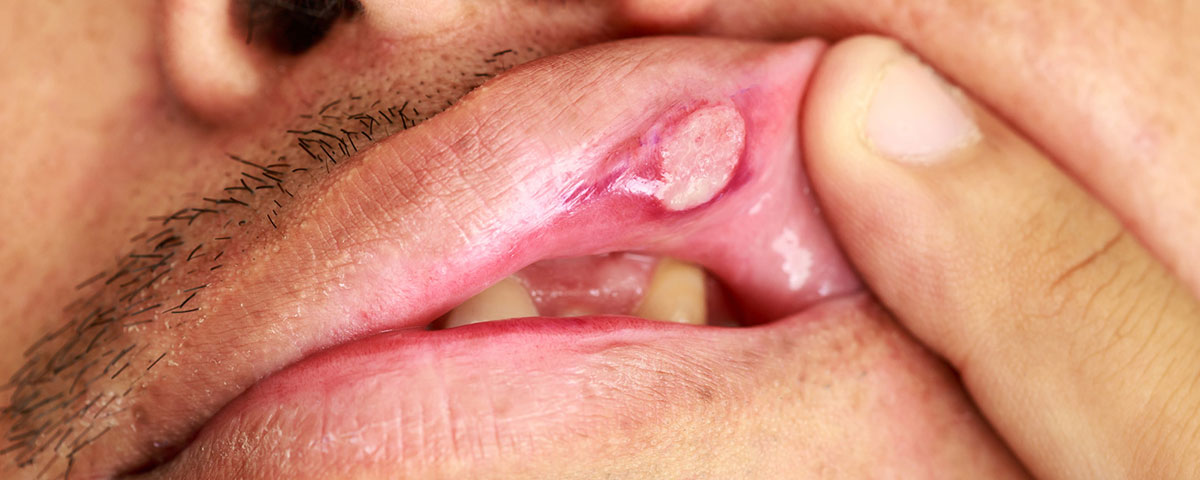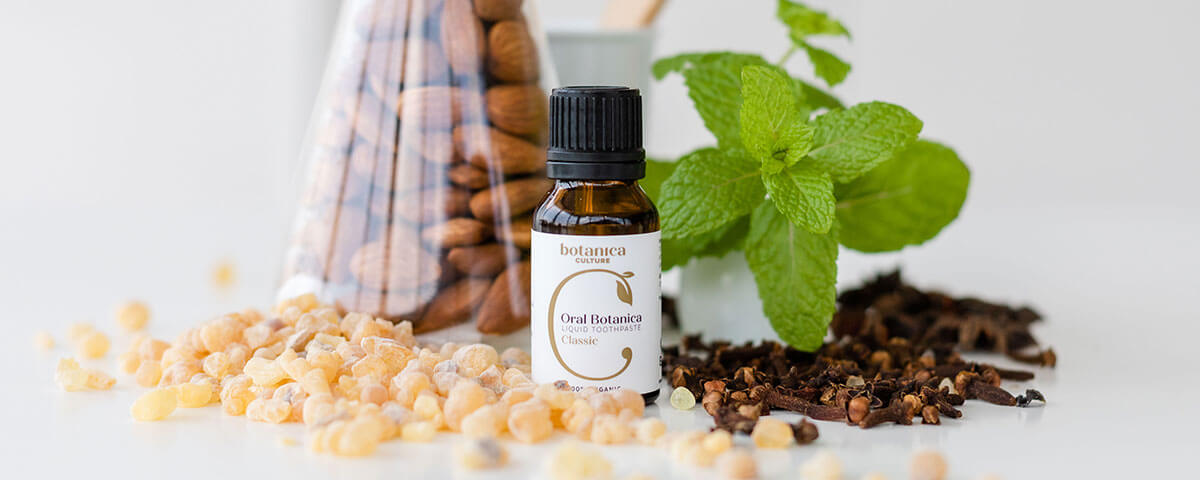Is your toothpaste giving you mouth ulcers?
The answer is YES. Many toothpastes are the culprit of your mouth ulcers. The chemicals in the commonly sold toothpastes are aggressive to the oral delicate lining. Therefore, it is important to read the ingredients of your toothpastes and avoid using them if you keep developing mouth ulcers.
How to avoid getting mouth ulcers?
It’s hard to believe that toothpaste can actually cause those nasty, stingy mouth ulcers we all want to avoid. Can our toothpaste really cause mouth ulcers?
Toothpastes are supposed to keep your mouth clean and bacteria-free, but studies have shown that an ingredient in some kinds of toothpastes can increase the chance of you getting an icky mouth ulcer.
Which toothpastes cause mouth ulcers?
A study from Scandinavia showed that toothpastes containing SLS (Sodium Lauryl Sulphate), a chemical foaming agent in many well-known toothpaste brands, can strip away the protective lining of your mouth.
In the study, patients who frequently succumbed to mouth ulcers (more than ten times over 3 months) used toothpaste for containing 1.2 percent SLS for 3 months, and then used an SLS-free toothpaste for the next 3 months. The results were significant: when patients used a toothpaste with no SLS, their number of ulcers dropped by 50 percent!
Why is SLS a problem in toothpaste?
Way back in 1983, a study from the American Journal of Toxicology already pointed to worrying issues with SLS: “Sodium Lauryl Sulfate had a degenerative effect on the cell membranes… Low levels of skin penetration may occur at high use concentration.” It also found that SLS could cause skin irritation even at a concentration of only 0.1%.
The chemistry database, PubChem also indicates that SLS can irritate the skin and eyes, and cause harm if swallowed. A by-product of SLS production, 1,4-dioxane has also been identified as a carcinogen.
In oral care products, apart from increasing ulcers, SLS has also been shown to irritate the mouth, disrupt taste and cause dry mouth, which can then lead to bad breath and an increase in cavities. Not much to smile about!
So, it’s definitely time to break up with SLS for good!
How to avoid SLS in your toothpaste
One easy way to beat mouth ulcers is to steer clear of chemical foaming agents, like SLS, in your toothpaste. It never hurts to be an ingredient detective and carefully study the ingredient list on your toothpaste tube.
You need to be a bit vigilant though because some manufacturers are now disguising SLS under the following baffling names: Monododecyl ester sodium salt sulfuric acid, Sodium Dodecyl sulfate, Sodium dodecyl sulphate, Sodium salt sulfuric acid, Monododecyl ester, Sulfuric acid monododecyl ester sodium salt, Sulfuric acid, Monododecyl ester, Sodium salt, A13-00356, Akyposal SDS Aquarex Methyl. If you see any of these, they contain a version of SLS. To find out if your toothpaste has SLS, check this database: http://www.ewg.org/skindeep/
It can take a bit of getting used to but your best bet is to start using a non-foaming toothpaste. Better still, choose one with all-natural ingredients so you can be very sure about what you’re putting in your mouth.
Oral Botanica Classic is a unique liquid toothpaste made from a proprietary blend of six powerful antibacterial botanical oils. It doesn’t contain any synthetic chemicals or artificial flavours and it is proven to heal and strengthen your teeth and gums by killing bad bacteria, while protecting the good bacteria in your mouth.
You only need two drops each time you brush. And as a bonus, you can even put a drop directly on an ulcer. The anti-inflammatory and antimicrobial oils will get straight to work and heal your ulcer in record time.
Here are some of our customers testimonials on how Oral Botanica Classic helped them on their mouth ulcers and gum problems:

“It is easy to use and very convenient. I had persistent bad breath and bleeding gums. I used it morning and night to replace my toothpaste. After using it for more than 2-3 days, my breath is much fresher and my bleeding gums stop. I rate the product 5 out 5!”
~ Jenny FPN

“I tend to bite the cheeks of my mouth or my tongue quite often. This will usually create a painful ulcer on the bitten part and it remains painful for days. But after using ORAL Botanica as my daily “toothpaste”, the amazing thing happens – the bitten part does not give me any more grieve! Quick relief and no soreness too!”
~ Mary Sim

“Some of the ladies from Pink Ribbon say they realised they don’t have any more mouth ulcers after using Oral Botancia regularly. I also realised that as well! I used to suffer from mouth ulcers last time. Some ladies also claim that their dentist praised their oral hygiene after they use Oral Botanica!”
~Katherine Goh
You can read more testimonials of Oral Botanica Classic here.
What causes mouth ulcers?
Changing to a non-foaming toothpaste is a key to an ulcer-free mouth but what else can we do to avoid getting ulcers? First of all, we need to understand why we get mouth ulcers.
The good news is that mouth ulcers are not caused by an infection and aren’t contagious. The bad news is that they have a variety of causes and some people are just more prone to ulcer outbreaks.
Common mouth ulcer causes:
- Accidentally biting your cheek while eating
- Minor mouth injuries from brushing your teeth too hard or using a hard toothbrush
- Using dirty utensils
- Sensitivity to acidic foods: strawberries, citrus, coffee or chocolate
- Not enough Vitamin C, B, zinc, folate or iron
- Rubbing or irritation from dental braces or dental work
- Changes in hormones during menstrual cycle
- Stress, overwork or lack of sleep
- Bacterial or viral infections
How can I avoid getting a mouth ulcer?

Mouth ulcer Dos and Don’ts
Do:
- use a toothbrush with soft to medium bristles
- choose whole grains and alkaline (nonacidic) fruits and vegetables
- eat a healthy, balanced diet
- boost your immunity with Vitamins C, A , zinc and folic acid (B9) and thiamine (B1)
- reduce stress: take some time out from work, add some yoga, meditation and walking
- avoid talking while chewing so you don’t accidentally bite your cheek
- maintain good oral hygiene by using flossing daily and brushing after meals with a natural toothpaste
- get more sleep and rest.
Don’t:
- eat very spicy, salty or acidic food
- eat crunchy food, such as toast or crisps
- drink very hot or acidic drinks, such as citrus fruit juice
- use chewing gum
- use toothpaste or mouthwash with sodium lauryl sulphate
Sometimes mouth ulcers are triggered by things you can’t control. They can occur more frequently because of:
- hormonal changes: pregnancy, menopause
- your genes – some families just get more mouth ulcers
- a vitamin B12 or iron deficiency
- medicines – including some forms of chemotherapy
- stopping smoking: mouth ulcers can appear when you first quit
- allergies to gluten or fluoride
If you’re plagued by frequent mouth ulcers, you have several at one time, or they won’t heal, please pop down to see your medical practitioner. An onslaught of mouth ulcers can be a sign of a more serious condition such as:
- hand, foot and mouth disease: also causes a rash on hands and feet
- Crohn’s and coeliac disease: auto-immune condition affecting the digestive system
- Other immunity problems causing your body to attack healthy mouth cells
- inflammatory bowel disease
- compromised immune system from HIV or lupus
Sometimes though, an ulcer just seems to come from nowhere, even if you’re staying away from foaming toothpaste! So how can you get rid of ulcers fast and naturally?
9 Natural Remedies for Mouth Ulcers.

1. Remember your Oral Botanica Classic
Botanica Culture’s Oral Botanica Classic 100% organic liquid toothpaste is perfect as a speedy, highly effective mouth ulcer cure. Its six antiseptic, antibacterial essential oils, including Peppermint oil, Tea Tree oil and Myrrh oil, kill bacteria, promote healing and ease the burning. Place 1–2 drops on a clean finger and then gently place on the ulcer a few times each day. It heals mouth ulcers like magic!
2. Zinc and Vitamin C Lozenge
To quickly relieve pain, you can suck on a zinc and vitamin C lozenge every two hours
3. Damp Tea Bags
Place cool damp tea bags on your mouth ulcer
4. Ice Cubes
If you rub an ice cube all over your ulcer, it will reduce pain instantly.
5. Liquorice root
As a natural anti-inflammatory, liquorice root coats the mouth’s delicate membranes, protecting the ulcer from irritation and easing pain.
Add a tablespoon of crushed liquorice root to 2 cups of water. Leave it to stand for 2–3 hours and then use as a mouth wash at least twice a day.
6. Salt water wash
Naturally antiseptic, salt relieves inflammation and dehydrates mouth bacteria so the wound can heal. To create a soothing salt gargle:
- Dissolve half a teaspoon of salt in a glass of warm water
- Rinse your mouth with the solution, then spit it out – don’t swallow
- Repeat as often as you like.
To ramp up the solution’s healing power, add 3 drops of Oral Botanica Classic and let the six essential oils work their antibacterial, anti-inflammatory magic.
7. Baking soda
If you have a mouth ulcer from acidic food, baking soda neutralises the acid and removes germs and bacteria. Make a paste from a teaspoon of baking soda and a little water. Place lightly on the ulcer a few times a day. Be careful because the mixture can sting when you first put it on.
8. Honey
Honey is antibacterial and boosts moisture, reducing mouth dryness. It also speeds up new tissue growth. Apply it straight on the ulcer. Or mix a pinch of turmeric with the honey for extra healing power.
9. Garlic
Contains a healing compound, allicin, which eases pain and reduces the size of an ulcer. Gently rub a small piece of garlic on the ulcer for 3–5 minutes. Rinse out your mouth after 20 minutes.
Food to Reduce Mouth Ulcers

When an ulcer has set your mouth on fire, the last thing you want to do is take a bite of anything, but the vitamins in some foods can boost your immunity. Certain foods also cool mouth ulcer monsters’ sting. Try:
- watermelon, pears, cucumber and lettuce to soothe ulcers
- smoothies, soups and juices: easy to swallow and won’t irritate inflamed mouth tissues
- Acidophilus yoghurt: calming and healing.
Chocolates, coffee, peanuts and strawberries are known to increase the risk of developing mouth ulcers so steer away from them, especially if an ulcer has already popped up.
Most of the time though, mouth ulcers are like an annoying colleague at work: you can usually dodge them but sometimes they just get in your face and hang around for a while.
But now, unlike with that colleague, at least you don’t have to grin and bear it when you have an ulcer.
Remember to banish foaming toothpastes from your life and reach for a natural remedy to quickly send your mouth ulcer on its way and bring a pain-free smile to your mouth.




